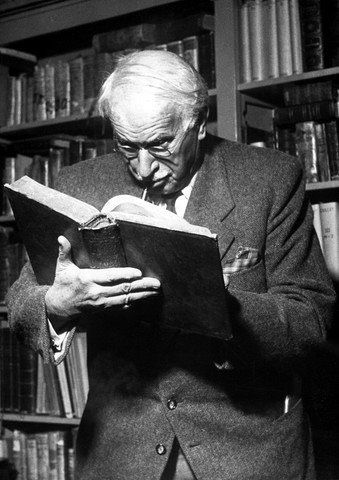最高かつ最も決定的な経験は、自分自身と独りになることです。 自分を支えられないとわかったとき、何が自分を支えているのかを見つけるには、一人にならなければなりません。 この経験だけがあなたに不滅な基盤を与えることができます。
- カール・ユング
The highest, most decisive experience is to be alone with one’s own self. You must be alone to find out what supports you, when you find that you can not support yourself. Only this experience can give you an indestructible foundation.
- Carl Jung
個性化と集団性
A.
[自分を支えられなくなったときに、何が自分を支えているのかを知りたければ、患者は孤独でなければなりません。 この経験だけが彼に不滅の基盤を与えることができる。]
[32] 私は、心理療法のプロセスが最終的に到達する目標として、人間の全体性から私の紹介を始めました。 この質問は、人の哲学的または宗教的な前提条件と密接に結びついています。 頻繁に起こることですが、たとえ患者がこの点において自分は全く偏見がないと信じている場合でも、患者の思考、生活様式、道徳、言語の根底にある前提は細部に至るまで歴史的に条件づけられており、その事実は患者にはしばしば守られています。
したがって、彼の状況の分析は、遅かれ早かれ、個人的な決定要因をはるかに超えた彼の一般的な精神的背景の解明につながることになり、これは私がこれまでのページで概説しようとした問題を提起します。 プロセスのこの段階は、統一のシンボル、いわゆるマンダラの生成によって特徴付けられます。マンダラは、夢の中で、または具体的な視覚的印象の形で発生し、多くの場合、意識的な状況の矛盾や対立の最も明白な補償として発生します。
キリスト教の象徴主義が、まさにこの傷を癒すこと、あるいは癒そうとすることに特に関心を持っていることは容易に示されるので、キリスト教の秩序における大きな「亀裂」がこの原因であると言うのは、ほとんど正確ではないでしょう。
この公然とした対立を西洋人の精神的状況の症状として捉え、キリスト教の象徴の全領域を同化できないことを嘆く方がより正しいだろう。 医師として、この点で私は患者に何も要求できませんし、教会の恵みの手段も私には欠けています。
その結果、私は自分に開かれた唯一の道を歩むという課題に直面しています。
つまり、 ある意味で独断的イメージに対応する元型的なイメージを意識化する必要があるのです。
同時に私は、深刻な矛盾が生じない限り、患者の思い込み、精神的な成熟度、教育、出身、気質に従って決定するよう患者に委ねなければなりません。 医師として、患者が人生に対処できるよう手助けするのが私の仕事です。
私は彼の最終決定について判断を下すつもりはありません。なぜなら、あらゆる強制は、暗示であれ、ほのめかしであれ、その他の説得方法であれ、最終的にはすべての中で最高かつ最も決定的な経験を妨げるものでしかないことを、あるいは精神の客観性と呼ばれるものを何でも選択することに対する障害にほかならないことが経験から知っているからです。
自分自身を支えられなくなったときに何が自分を支えているのかを知りたいのであれば、患者は一人でなければなりません。 この経験だけが彼に不滅の基盤を与えることができます。
~CG Jung、CW 12、パラ 32
A.
[The patient must be alone if he is to find out what it is that supports him when he can no longer support himself. Only this experience can give him an indestructible foundation.]
[32] I began my introduction with human wholeness as the goal to which the psychotherapeutic process ultimately leads. This question is inextricably bound up with one’s philosophical or religious assumptions. Even when, as frequently happens, the patient believes himself to be quite unprejudiced in this respect, the assumptions underlying his thought, mode of life, morale, and language are historically conditioned down to the last detail, a fact of which he is often kept unconscious by lack of education combined with lack of self-criticism. The analysis of his situation will therefore lead sooner or later to a clarification of his general spiritual background going far beyond his personal determinants, and this brings up the problems I have attempted to sketch in the preceding pages. This phase of the process is marked by the production of symbols of unity, the so-called mandalas, which occur either in dreams or in the form of concrete visual impressions, often as the most obvious compensation of the contradictions and conflicts of the conscious situation. It would hardly be correct to say that the gaping “rift” in the Christian order of things is responsible for this, since it is easy to show that Christian symbolism is particularly concerned with healing, or attempting to heal, this very wound. It would be more correct to take the open conflict as a symptom of the psychic situation of Western man, and to deplore his inability to assimilate the whole range of the Christian symbol. As a doctor I cannot demand anything of my patients in this respect, also I lack the Church’s means of grace. Consequently I am faced with the task of taking the only path open to me: the archetypal images — which in a certain sense correspond to the dogmatic images — must be brought into consciousness. At the same time I must leave my patient to decide in accordance with his assumptions, his spiritual maturity, his education, origins, and temperament, so far as this is possible without serious conflicts. As a doctor it is my task to help the patient to cope with life. I cannot presume to pass judgment on his final decisions, because I know from experience that all coercion — be it suggestion, insinuation, or any other method of persuasion — ultimately proves to be nothing but an obstacle to the highest and most decisive experience of all, which is to be alone with his own self, or whatever else one chooses to call the objectivity of the psyche. The patient must be alone if he is to find out what it is that supports him when he can no longer support himself. Only this experience can give him an indestructible foundation.
~CG Jung, CW 12, para 32
ソフィアサイクル
もし私たちが自分自身の内なる真実を見つけたいのであれば、私たちは一人で自分の暗闇に入り、自分自身の治癒の元型を見つけるまで自分の内なるプロセスにとどまらなければならないという事実は変わりません。 その関係が確立されると、グループに所属しているかどうかに関係なく、私たちは個別の道を歩みます。 過去の歴史を断ち切り、独り立ちするのは大変な勇気が必要です。
マリオン・ウッドマン 完璧への中毒
SOPHIACYCLES
[T]he fact remains that if we are to find our own inner truth, we have to go into our darkness alone and stay with our inner process until we find our own healing archetypal pattern. Once that relationship is established, we are on our individual path whether we are with a group or not. It takes great courage to break with one's past history and stand alone.
Marion Woodman Addiction to Perfection
「完全な放棄と孤独の状態においてのみ、私たちは自分自身の性質の役立つ力を経験します。」
-CG ユング
"It is only in the state of complete abandonment and loneliness that we experience the helpful powers of our own natures”
-C.G. Jung

